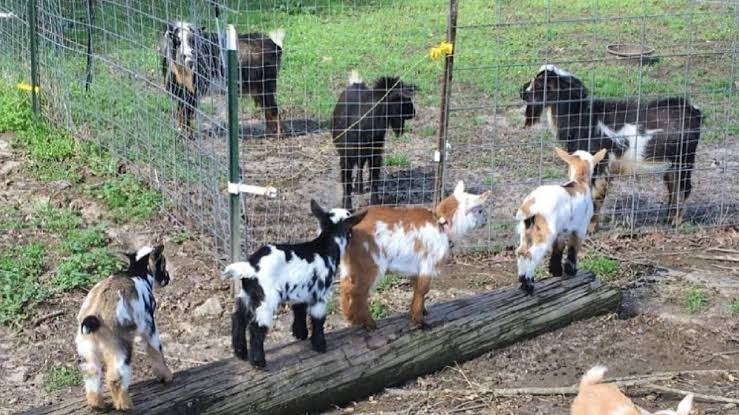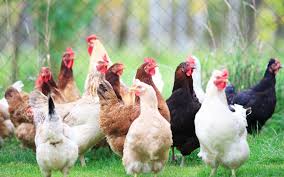How to breed your livestock; Breeding your livestock means helping your animals have babies. This is important for farmers because it helps them make sure there are enough animals for different reasons. When you breed your livestock, you want to make sure the babies are strong and healthy. Farmers choose which animals will be the parents to make sure the babies have good traits.
Good traits can be things like being strong, growing fast, or having a lot of milk or meat. Farmers look at the animals and choose the ones that have these good traits. This is called selective breeding. It’s like picking the best players for a team so the team can be strong and win.
After choosing the parents, the animals spend time together. The mommy animal gets pregnant and, after some time, gives birth to baby animals. It’s important to take care of the mommy and babies during this time. They need good food, clean water, and a safe place to live.
Breeding your livestock is like growing a big family. Farmers want their animals to be happy and healthy so they can provide things like milk, eggs, or meat. Taking good care of the animals helps the farm and the people who depend on it. It’s a special job that requires love and attention to make sure the animal family keeps growing strong.
Read Also: Feed Lot Fattening of Rams Practice
How to Breed your Livestock

Breeding your livestock can be a rewarding and beneficial endeavor. Whether you’re raising cattle, goats, sheep, or other animals, the process of breeding plays a crucial role in maintaining a healthy and productive herd. Here are some essential steps and considerations to help you successfully breed your livestock.
1. Selecting Healthy Breeding Stock: Begin by choosing animals with good health and desirable traits for breeding. Look for characteristics such as strong build, good reproductive history, and resistance to common diseases.
2. Age and Maturity: Ensure that your livestock has reached the appropriate age and maturity for breeding. Breeding too early or too late can lead to health complications for both the parent animals and their offspring.
3. Nutritional Requirements: Maintain a well-balanced and nutritious diet for your breeding stock. Proper nutrition is vital for reproductive health and the development of healthy offspring.
4. Monitoring Reproductive Cycles: Understand the reproductive cycles of your livestock. Keep track of estrus or heat cycles to identify the optimal time for mating.
5. Controlled Breeding Environment: Create a controlled and safe environment for mating. This reduces stress on the animals and increases the chances of successful breeding.
6. Natural Breeding vs. Artificial Insemination: Consider the method of breeding that suits your goals. Natural breeding allows for natural selection, while artificial insemination provides control over genetic traits.
7. Record Keeping: Maintain detailed records of breeding activities. This includes dates of mating, parentage, and any health interventions. Accurate records help in managing your herd effectively.
8. Pregnancy Care: Provide proper care for pregnant animals. This includes adjusting their diet, monitoring health, and preparing a suitable birthing area.
9. Birthing Process: Be prepared for the birthing process. Have necessary supplies on hand, and monitor the pregnant animal closely for signs of labor.
10. Postnatal Care: Ensure proper care for newborns. Monitor their health, provide necessary vaccinations, and support their growth and development.
11. Weaning Process: Implement a gradual weaning process for the offspring. This helps them adjust to independent feeding and reduces stress.
12. Genetic Diversity: Strive for genetic diversity within your herd. Avoid excessive inbreeding, as it can lead to health issues and a decline in overall herd quality.
13. Health Management: Implement a robust health management program. Regular vaccinations, parasite control, and preventive measures contribute to a thriving and disease-resistant herd.
14. Continuous Learning: Stay informed about the latest developments in livestock breeding. Attend workshops, read relevant literature, and seek advice from experienced breeders to enhance your knowledge.
However, breeding your livestock requires a combination of careful planning, attentive care, and a commitment to continuous improvement. By following these steps and staying dedicated to the well-being of your herd, you can foster a successful breeding program and enjoy the benefits of a healthy and thriving livestock population.
Read Also: The Systems of Sheep Production
Advantages of Breeding your Livestock

Breeding your livestock offers numerous advantages that contribute to the overall success and sustainability of your farming operation. Here are some key benefits:
1. Genetic Improvement: Breeding allows you to select animals with desirable traits, such as high productivity, disease resistance, and good temperament. Over time, this leads to genetic improvement within your herd.
2. Increased Productivity: Selective breeding for traits like high milk production, faster growth rates, or increased wool quality can significantly enhance the overall productivity of your livestock.
3. Better Adaptation to Environment: Through breeding, you can develop a herd that is well-adapted to your specific environment. This includes resistance to local diseases, tolerance to climate conditions, and suitability to available forage.
4. Disease Resistance: Selective breeding enables the development of animals with increased resistance to common diseases. This helps in reducing the need for medical interventions and promotes overall herd health.
5. Enhanced Reproductive Efficiency: Breeding allows you to optimize reproductive efficiency by selecting animals with a history of successful breeding. This leads to a higher percentage of pregnancies and healthier offspring.
6. Customization of Traits: You have the flexibility to customize traits based on your specific needs. Whether it’s a focus on meat quality, wool texture, or milk composition, selective breeding allows you to tailor your herd to meet market demands.
7. Profitability: A well-thought-out breeding program can contribute to increased profitability. Improved genetics, higher productivity, and better-quality products can enhance the market value of your livestock.
8. Sustainability: Breeding for traits like efficiency in resource utilization, resilience, and adaptability contributes to the long-term sustainability of your farming operation.
9. Conservation of Rare Breeds: Breeding allows you to participate in the conservation of rare or endangered livestock breeds. By maintaining and propagating these breeds, you contribute to preserving biodiversity in agriculture.
10. Personal Satisfaction: Successful breeding and seeing the positive results in your herd can be personally rewarding. The satisfaction of achieving genetic goals and witnessing healthy, thriving animals is a significant benefit for many livestock farmers.
11. Efficient Resource Utilization: By breeding animals that are well-suited to your environment, you can optimize resource utilization. This includes better forage conversion, reduced feed costs, and minimized environmental impact.
12. Customization for Local Markets: Breeding can be tailored to meet the preferences and demands of local markets. Understanding and responding to consumer needs can enhance your competitiveness in the agricultural industry.
In summary, breeding your livestock offers a range of advantages, from genetic improvement and increased productivity to enhanced disease resistance and adaptability. By carefully managing your breeding program, you can build a resilient and profitable herd that aligns with your farming goals and contributes to the overall success of your agricultural enterprise.
Read Also: Chicken Brooder House – Complete Chicks Brooding Care Guide

